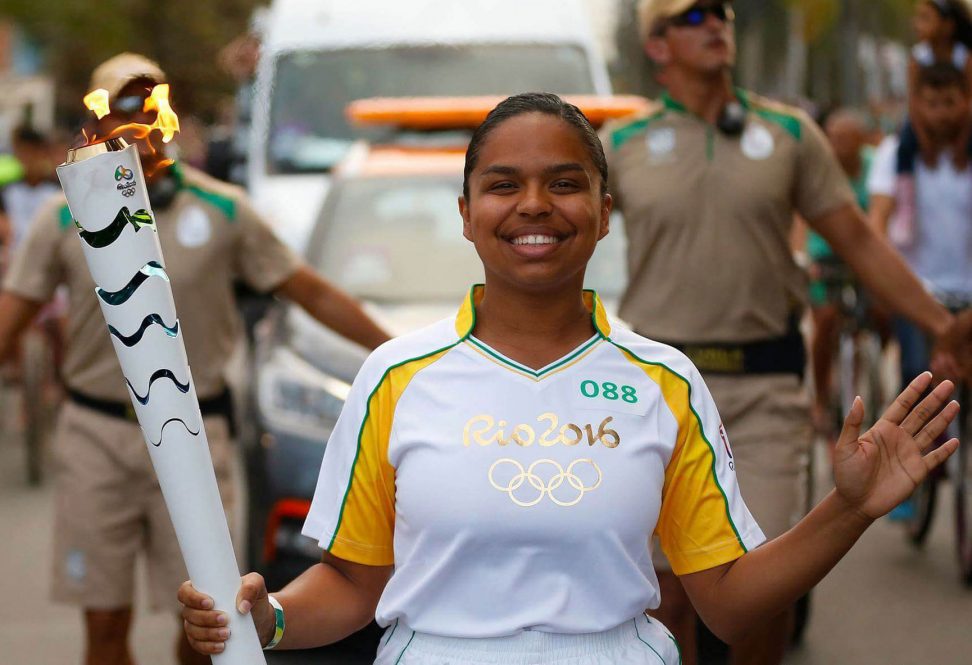As a teenager in her hometown of Paraty, Brazil, Pauline Batista ’16 MA was enrolled in a rigorous five-year teacher- training high school and held multiple paid internships. “It was very hectic because I would leave my house at 7 in the morning and come back at 10 at night,” Batista says. “Your average 15-year-old is not dealing with all that. But for me, that was normal.”
She didn’t slow down in the summers, working for Festa Literária Internacional de Paraty (Flip), the largest literary festival in Brazil. Her work as program coordinator of youth-oriented FlipZona included media and filmmaking programs and inspired her early interest in filmmaking. At Mitchell College in New London, Connecticut, she focused on video production, but after graduation, she says, “I started to get really critical of the relationships between what we call people from the North and people from the South” — those regions of the world that have more and, respectively, less wealth and power. After earning a master’s degree in Latin American studies at UConn, she decided to return to Brazil for a year while deciding what to pursue next.
“I go back home after all those years and, after participating in this literature festival since 2002, for 14 years, every summer,” she says, “I learned that the media program was going to be entirely cut. I was enraged.”
Batista ended up in a meeting with the secretary of education for Paraty, whom she effectively lobbied for the refunding of the program — a success she attributes to the critical thinking she learned at UConn. “I was exposed to the right body of work and literature,” she says. “The conversation shifts because I could shift the conversation.”



